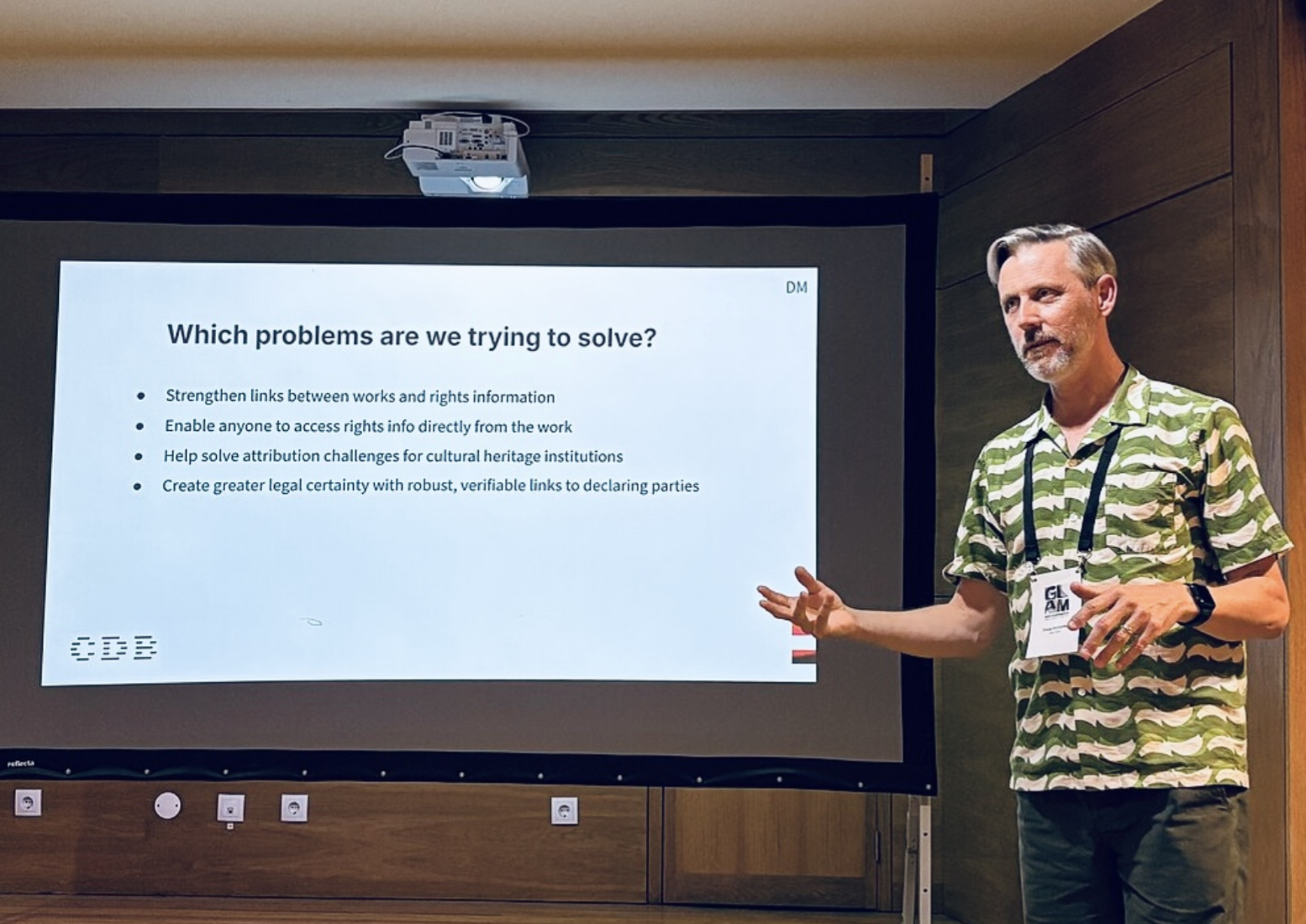Open Future has launched the CommonsDB Explorer—the first public interface for the prototype registry of Public Domain and openly licensed works—as part of the initiative funded by the European Commission and developed with partners Liccium, the Europeana Foundation, Wikimedia Sverige and the Institute for Information Law. The Explorer provides public access to early registry data and demonstrates how verifiable rights information can be shared across systems, marking a step toward clearer and more reliable rights information for cultural heritage institutions and platforms.
With this first release, [CommonsDB Explorer](https://registry.c…
Open Future has launched the CommonsDB Explorer—the first public interface for the prototype registry of Public Domain and openly licensed works—as part of the initiative funded by the European Commission and developed with partners Liccium, the Europeana Foundation, Wikimedia Sverige and the Institute for Information Law. The Explorer provides public access to early registry data and demonstrates how verifiable rights information can be shared across systems, marking a step toward clearer and more reliable rights information for cultural heritage institutions and platforms.
With this first release, CommonsDB Explorer allows users to browse more than 200,000 declarations (with many more to come) from Europeana and Wikimedia Sverige, see who made a declaration and when, and upload a file to check for a matching declaration. Each record includes a content-derived ISCC identifier and links back to the source asset and rights statement, helping ensure that rights information travels with the asset rather than evaporating as content moves across the web. The goal is simple: help systems and people quickly understand what can be reused, on what terms, and trust the rights information behind it.
As outlined in the February 2025 announcement, CommonsDB represents Open Future’s first major effort to develop shared public digital infrastructure for the Digital Commons—building on the 2021 white paper that inspired the European Parliament to fund this work.
What we heard in Lisbon
Doug McCarthy (Open Future) and Karin Glasemann (Wikimedia Sverige) introduced the Explorer at GLAM Wiki Conference 2025 in Lisbon. Wikimedians and cultural heritage professionals quickly understood the CommonsDB concept and saw practical applications—from rights checking in Wikimedia Commons to researching copyright information in heritage collections. Participants also discussed features that could support Wikimedia Commons over time, such as duplicate detection and similarity matching to help surface related assets.

Some participants immediately began testing the system, and— as expected at this early stage—not every upload or search returned a match. With only a small slice of the Public Domain and openly licensed content universe represented so far, the gaps reflected scale rather than model limits. Seeing this in real time helped anchor the discussion in the reality of an early prototype growing toward the size of the collections it aims to serve.
Questions ranged from the practical to the forward-looking:
- how CommonsDB will handle declarations for works with different copyright terms across countries;
- how updates or corrections to rights information will be tracked;
- and how the registry might connect with other data sources—including signals about AI usage preferences, the focus of a recent CommonsDB expert workshop.
We will explore these topics further in the second part of our Feasibility Study, which we will publish later this year, as well as in our Strategy Paper next July.
Looking ahead
The GLAM Wiki audience signaled both appetite and expectation. With the first version of the Explorer now live, the CommonsDB team has entered a phase of real use, feedback, and steady iteration. Over the next few months, we will refine the Explorer’s search and filtering capabilities, as well as its overall user experience. We will also add millions more declarations to the registry.
Where CommonsDB sits in Open Future’s work
CommonsDB sits within Open Future’s broader agenda to build copyright infrastructure for the digital commons—systems that make rights information discoverable, verifiable, and usable across platforms. This matters for cultural heritage institutions stewarding Public Domain collections, and for emerging AI governance frameworks that depend on trustworthy, machine-readable rights information.
Alongside technical development, work continues on governance and sustainability through the feasibility study. Institutions interested in participating can contact the CommonsDB team.
If you work with Public Domain or openly licensed collections, your perspective is welcome. You can try the Explorer at https://registry.commonsdb.org/ and follow the wider activity at https://commonsdb.org.